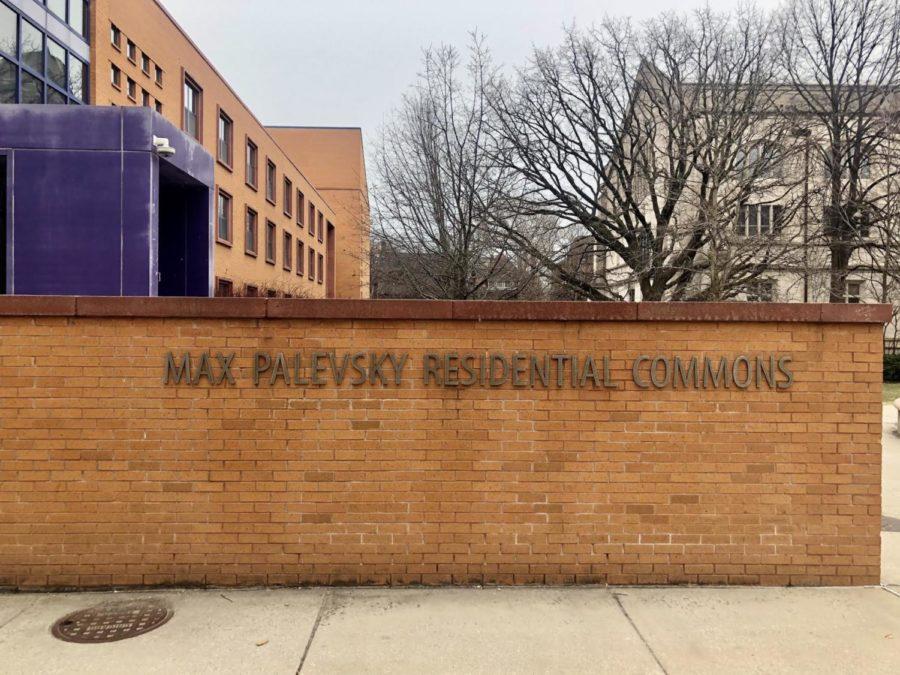In an email sent on November 30, Housing & Residence Life (HRL) informed students remaining in University residence halls that residents who failed to tap their IDs at residence hall desks between November 20 and November 30 will have their applications for winter break housing automatically rejected. Additionally, moving forward, residents who do not tap their student IDs between 9 a.m. and noon every day will be removed from housing within 48 hours, according to Monday’s email from HRL.
The ID-tapping protocols were put in place to ensure that students are “safe and well,” according to the email. “It is most unfortunate that such serious measure [sic] have to be taken[,] but we have been left with no other choice given the high number of students who have violated the terms of their residency,” HRL wrote.
The ID policies, however, have been met with opposition by many on-campus students who say the policy of immediate evictions harms low-income and international students.
“It basically puts a massive burden on any disadvantaged student, be they international and hence literally unable to get a flight home in an emergency because [of the] pandemic or be they low-income students who can’t reasonably be expected to either come up with alternative housing in Chicago or get a plane ticket within 48 hours for one mistake,” said Ashley Wimer, a first-year living in Campus North Residential Commons.
Wimer has since drafted a petition to reverse the ruling and encouraged other members of the Class of 2024 to send the document to Dean of the College John Boyer. Specifically, the petition asked to “please ensure coordination between HRL and the necessary administrators to reverse these policies and, if necessary, to replace them with more equitable alternatives.”
Wimer’s initial reaction to the HRL email was “outrage [and] concern…. It’s just a ridiculous policy. I don’t see how this got through the gates,” she said.
Other students, such as Nick Clifford, a first-year currently living in Burton-Judson Courts, expressed similar fears. “A lot of what I’ve seen is concern for international students especially,” he said.
One of them is Donte Day, a first-year Woodlawn resident from Wales, who recalled that it felt “gut-wrenching” to receive HRL’s email. “Since I’m applying for winter housing too, I was frantically trying to remember if I had tapped in between November 20 and 30 because I had not realized that they notify students who had not tapped in on time. I also remember thinking how incredibly unfair that policy was, because one of the main reasons why I requested winter break housing was because of the uncertainty with traveling due to the virus, so it is incredibly unfeasible to ask an international student to leave the residence halls within 48 hours,” Day said.
Day was, however, encouraged by the efforts of his peers to craft a petition. “I [was excited] to see that many other students, domestic and international, empathized with disadvantaged international students and others who may be severely impacted by HRL’s policies.”
Clifford contends that the tap-in system is fundamentally flawed due to a loophole wherein students can claim to live on campus but in actuality remain elsewhere. “Even if they are trying to prevent people from staying off campus, this isn’t solving anything. Plenty of people have relatives or friends in the Chicago area who they could stay with for extended periods of time and just drive back, tap in, and then leave again,” he said.
According to Wimer, in previous communications from HRL, students were not informed of any sort of disciplinary action being taken had they failed to tap their ID cards that day. The wording of the most recent email did not clarify matters. “Some students were very worried…that they were getting kicked out of housing now because they didn’t get to tap in today,” she said. “If you read it and you are careful, you’ll know that it’s not the case, but they should have explicitly stated that.”
The general consensus was that the punishment did not fit the crime. Clifford observed that “in every single instance of people forgetting to tap in, it’s just been…a careless mistake, and then they talk to the people at the front desk and get it sorted out.”
University spokesperson Gerald McSwiggan defended the policy in an email to The Maroon.
“This is an important safety measure due to the low numbers of individuals remaining in residence halls after November 20 and the need to ensure that they are accounted for. Resident Staff repeatedly contacted students who did not check in to confirm their health and safety and remind them of the check-in requirement. Students who persisted in breaking the terms of the policy received a note outlining the consequences as previously agreed upon. Housing and Residence Life is reviewing applications for winter break housing on individual bases,” McSwiggan said.
“Those who need assistance with off-campus housing should review this guide or contact offcampushousingquestions@uchicago.edu,” McSwiggan continued.









